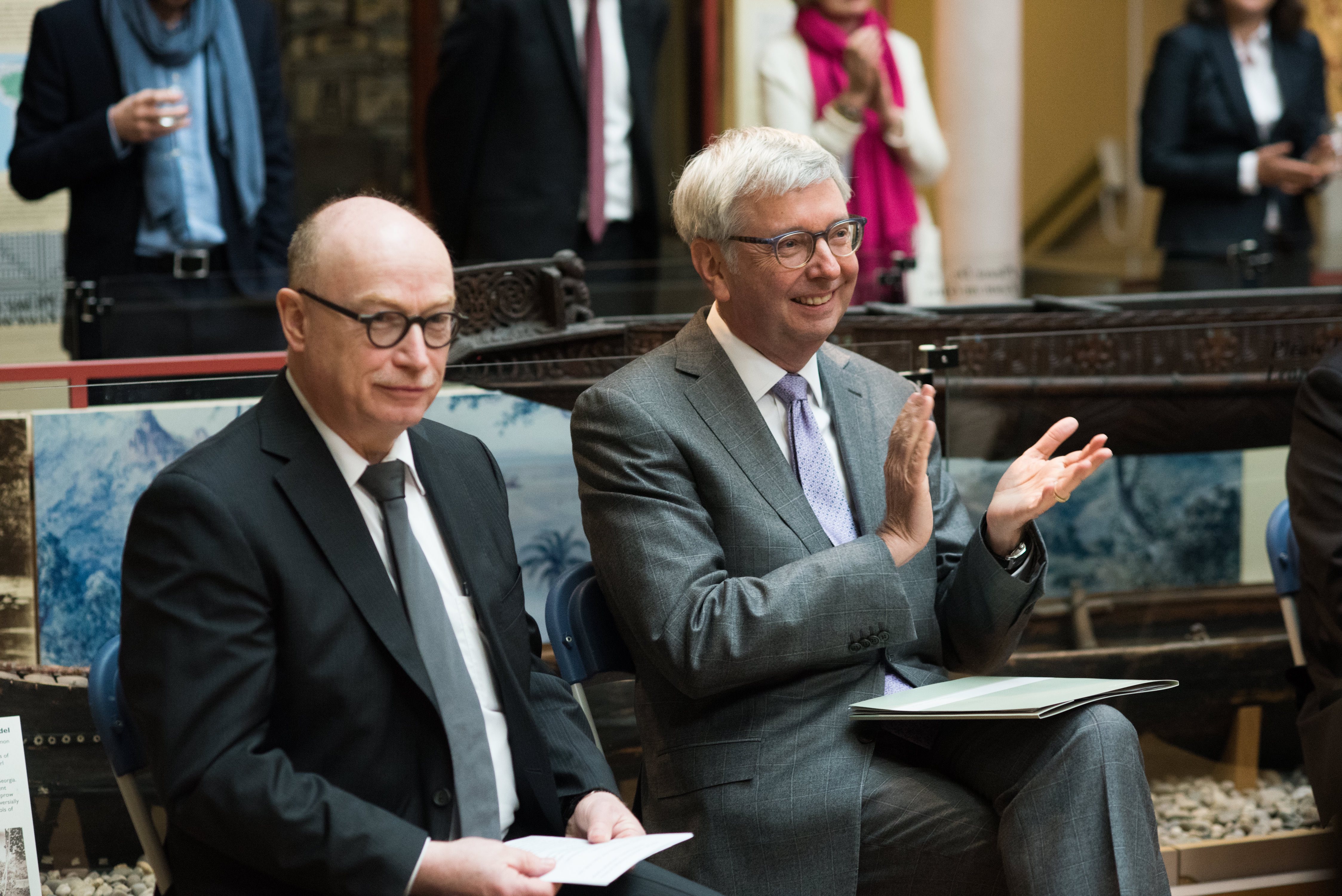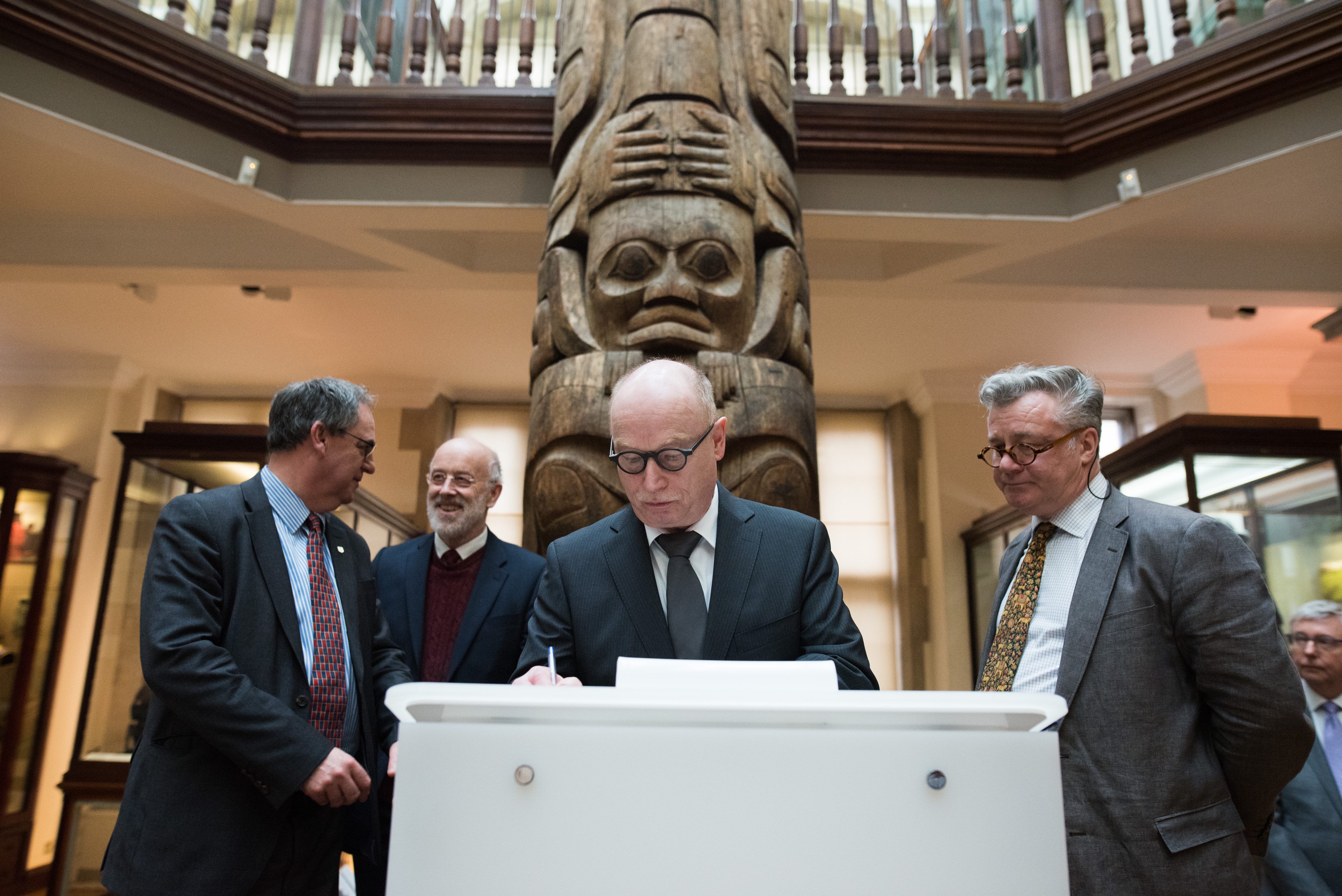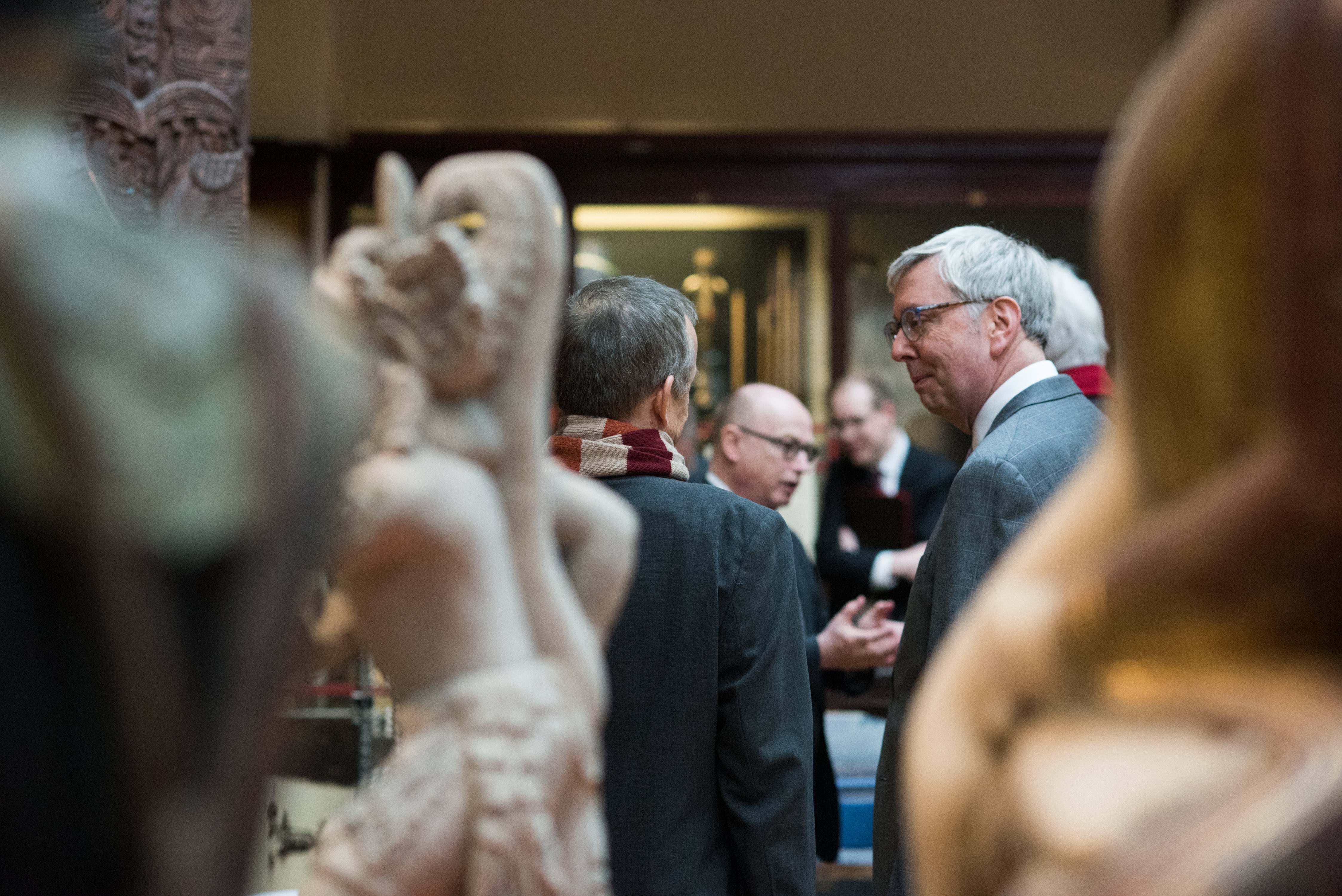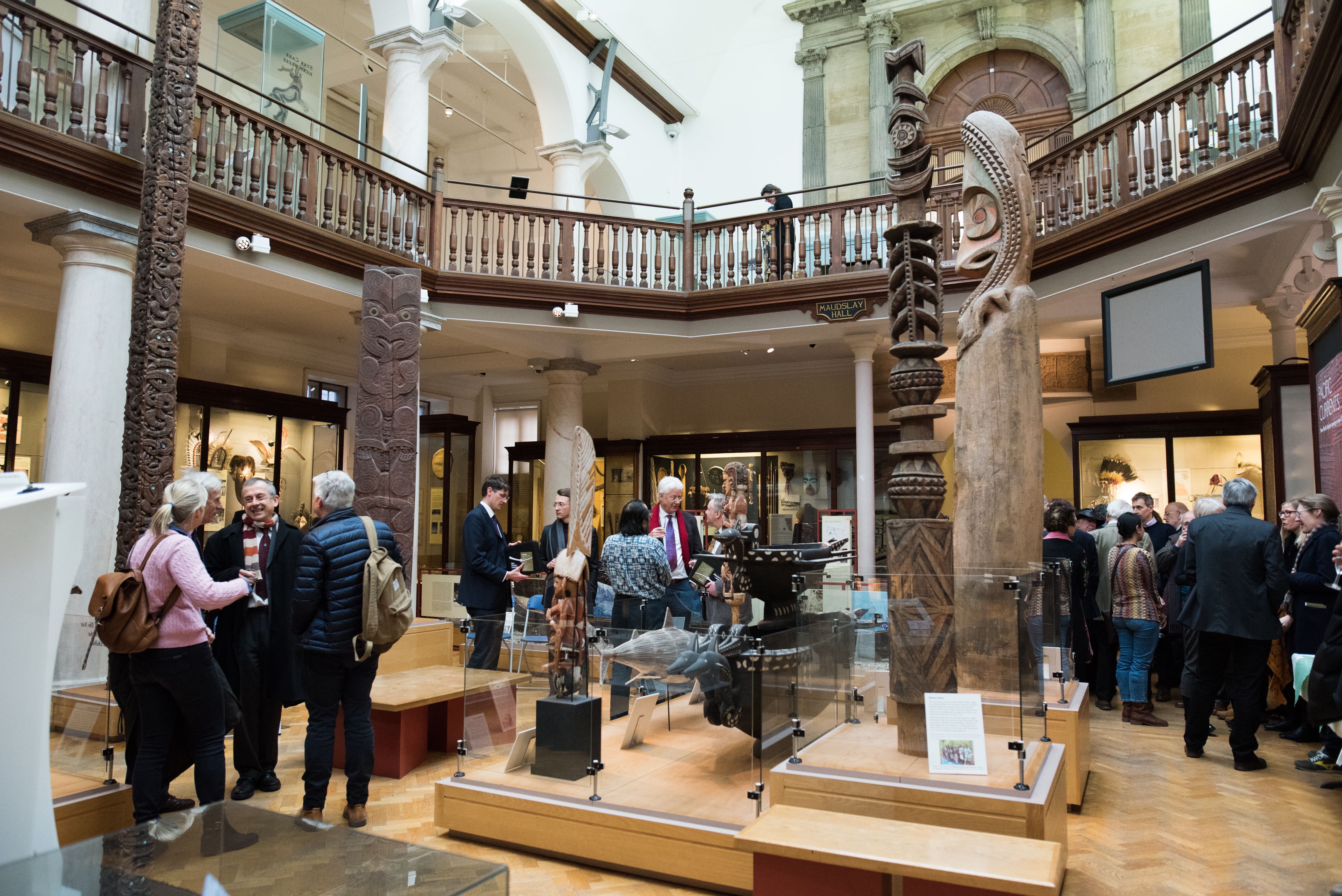The Max Planck Society’s president Professor Martin Stratman, together with Vice Chancellor of the University of Cambridge, Stephen Toope, launched the Max Planck Cambridge Centre for Ethics, Economy and Social Change (Max Cam) on Tuesday 6 March with our four co-directors.
The event, held at Cambridge’s Museum of Archaeology and Anthropology, was the formal start for the six new post-doctoral research projects (see belopw) as well as a range of events we will be organising over the coming four years. Public lectures, workshops and larger conferences will be hosted both in Cambridge and the two German partner institutions in Halle and Göttingen making the Centre a hub for research bridging the topics of ethics, the economy and social change.
Speaking at the launch event, Professor James Laidlaw, Head of the Department of Social Anthropology and co-director of Max Cam, said:
“This new Max-Cam Centre is the most ambitious and important of a number of initiatives the newly restored Department is embarking upon. It is an attempt… to show that ethical values and practice are just as pervasive in economic life as they are in religion, or the family… Morality is as crucial to explaining when people behave badly as it is to explaining when they behave well; as crucial to understanding how they cope with adversity as it is to understanding the ambitions they pursue. This is especially important when those hopes and ambitions are radically different from our own: when people’s values seem to us to be perverse, shallow, distorted, or plain incomprehensible.”
Fellow co-director Professor Chris Hann, of the Max Planck Institute for Social Anthropology at Halle, described Max Cam as an opportunity to renew the moral sciences, and expressed his hope that, in the wake of Brexit, the new Centre will demonstrate the value of continued European collaboration in science and society:
“When we prepared the proposal over two years ago, few observers anywhere imagined that citizens of the UK would vote in a referendum to leave the European Union… In this uncertain climate, we would be very happy if the launch of our modest Centre can be a catalyst for further collaboration between the Max Planck Society and this great University.“
Addressing this point, Professor Martin Stratmann said: “I am delighted that, in this period of uncertainty caused by Brexit, we have established another highly visible collaboration with top British scientists”.
He added: “Without any doubt, in today’s globalized world, the dynamics between ethics, religion and economy have reached an unprecedented complexity. This makes the research of the new Max Planck Cambridge Centre very relevant for our times. This cooperation brings together the complementary skills of outstanding scientists of the Max Planck Society and the University of Cambridge.”
Bringing the launch event to a close, Professor Stephen Toope remarked: “The more incomprehensible the world about us seems, the more we need to employ our anthropological imagination to appreciate its depth and diversity. This new joint venture with the Max Planck Society helps us do just that.”




